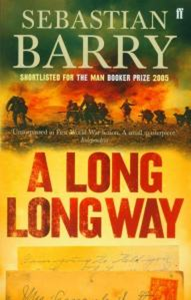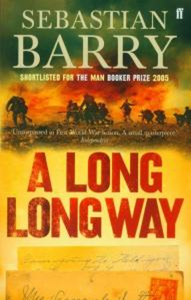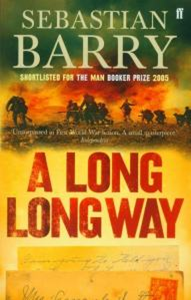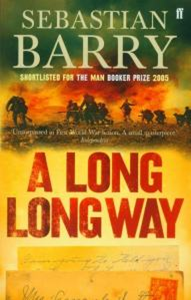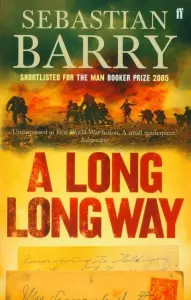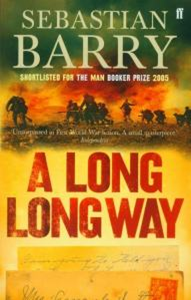
Willie visits Captain Pasley’s parents’ farm at Tinehely. He feels hollowed out by the prior day’s events and as he walks through Dublin he notices first the repair of the war-damaged city and then, as he walks down Marlborough Street, a group of children throw stones at him. They believe he is a British soldier and taunt him to go home. He tells them that he is home.
At Tinehely he encounters a Protestant vicar as he climbs the hill to the Pasley’s. The vicar’s kind words to Willie almost make him weep.
When Willie reaches the Pasley house he is full of misgivings about visiting. He wonders at the reasons for coming. When he knocks on the cottage door he is greeted by a kind and welcoming woman who, it transpires, is Captain Pasley’s mother. He talks awkwardly, stiltedly, of his admiration for her dead son. Mrs Pasley observes that Willie misses him; this profoundly affects Willie, and Pasley’s memory becomes intertwined with his memories of all the dead comrades he has known. Willie curses his foolishness in visiting and being unable to say how he feels. Nonetheless, Mrs Pasley tells Willie what a comfort his visit is. At the return of Mr Pasley, the group has tea together, and later Willie is walked by Mr Pasley to the railway station. Mr Pasley shows Willie Captain Pasley’s gravestone, which expresses pride in his son’s sacrifice for ideals of King and Empire. Willie comforts the grieving man.
Making a connection in Dublin to return to the front, Willie is surprised by Dollie at the railway station. Annie and Maud have brought her to say goodbye, and hang back behind the barrier instead of speaking to Willie, but he is delighted to bid farewell to his youngest sister.

